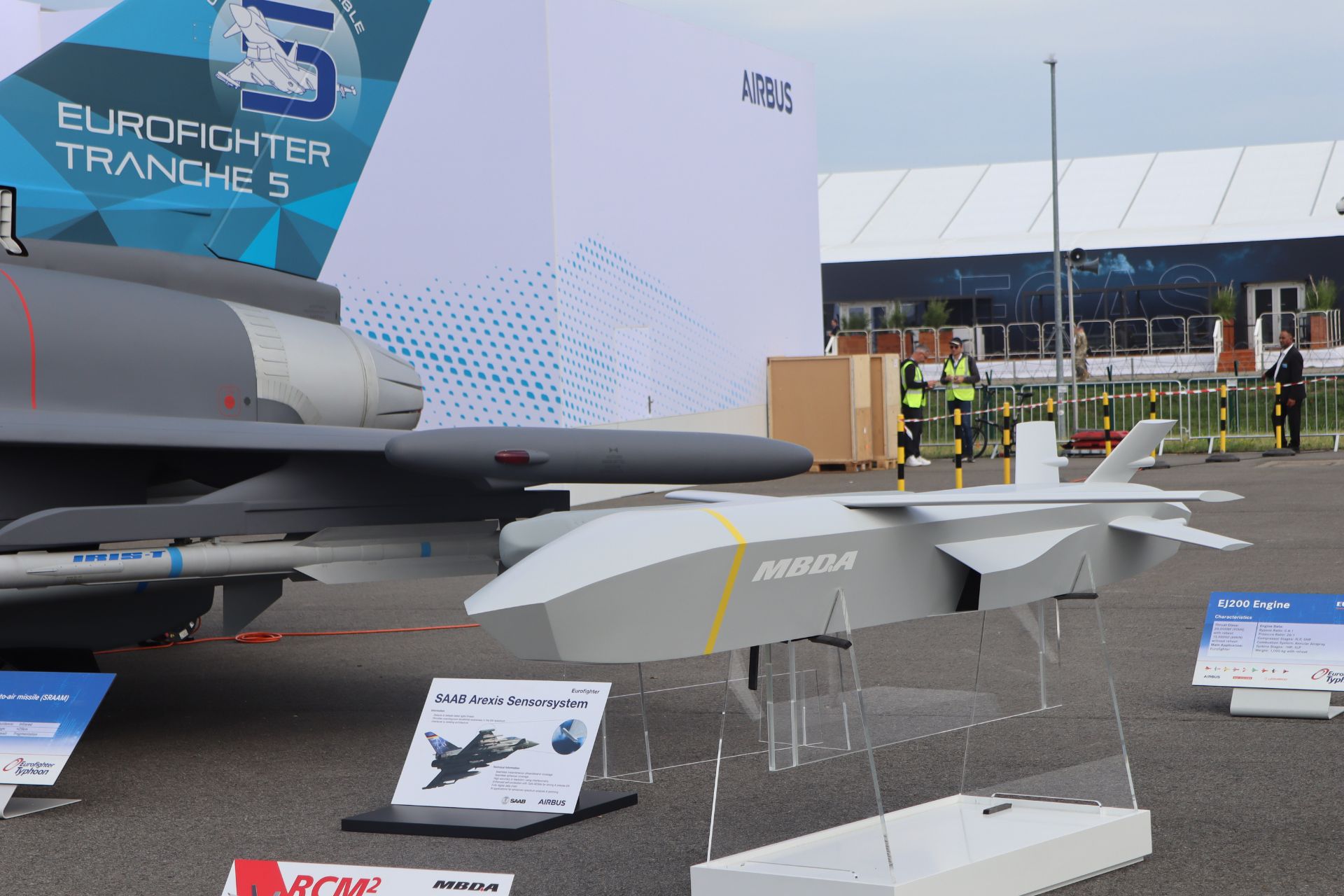ILA 2024 : MBDA unveils RCM² future of loitering munition

{loadposition bannertop}
Breaking news
{loadposition sidebarpub}
MBDA is presenting for the first time at ILA 2024 in Berlin, the future RCM² (Remote Carrier Multidomain Multirole Effector) multidomain. RCM² can be used in both kinetic and electromagnetic spectrums. Compared to available systems on the market, RCM² can operate in highly contested or defended operational areas.Follow Army Recognition on Google News at this link
RCM2 loitering munition presented at ILA 2024 (Picture source: Army recognition )
Developed by MBDA in Germany, RCM² is designed for a wide range of applications as well as combat masses. It offers both short and long-range effects. Additionally, RCM² has a loitering capability and can also engage targets in GPS-denied environments.
This aerial vector is a loitering munition, which is GPS-guided, capable of flying in swarms. Interactive guidance and swarm leadership handover can theoretically be performed by any operator integrated into the network. The platform from which RCM² is launched and the domain through which it is directed is flexible and adaptable to operational needs. This approach allows the remote carrier to be used across all branches of the armed forces. In later expansion phases, RCM² will acquire reconnaissance and target data based on sensors and will thus be able to provide real-time situational images.
Powered by a turbojet, RCM² can carry different payload compositions, making it adaptable to all missions. Furthermore, different payloads can be combined in a single mission. There are three payload options: an explosive warhead to create a loitering munition, electronic warfare composed of jammers, and another featuring sensors for intelligence gathering. Weighing about 340kg and with a range of approximately 500km, RCM² is designed to be launched from the Future Combat Air System, a future fighter jet project.
As one of the main partners in the next-generation weapon system of the FCAS program, MBDA is advancing the technological development of RCM² in collaboration with its Spanish partner SATNUS.

{loadposition bannertop}
Breaking news
{loadposition sidebarpub}
MBDA is presenting for the first time at ILA 2024 in Berlin, the future RCM² (Remote Carrier Multidomain Multirole Effector) multidomain. RCM² can be used in both kinetic and electromagnetic spectrums. Compared to available systems on the market, RCM² can operate in highly contested or defended operational areas.
Follow Army Recognition on Google News at this link
RCM2 loitering munition presented at ILA 2024 (Picture source: Army recognition )
Developed by MBDA in Germany, RCM² is designed for a wide range of applications as well as combat masses. It offers both short and long-range effects. Additionally, RCM² has a loitering capability and can also engage targets in GPS-denied environments.
This aerial vector is a loitering munition, which is GPS-guided, capable of flying in swarms. Interactive guidance and swarm leadership handover can theoretically be performed by any operator integrated into the network. The platform from which RCM² is launched and the domain through which it is directed is flexible and adaptable to operational needs. This approach allows the remote carrier to be used across all branches of the armed forces. In later expansion phases, RCM² will acquire reconnaissance and target data based on sensors and will thus be able to provide real-time situational images.
Powered by a turbojet, RCM² can carry different payload compositions, making it adaptable to all missions. Furthermore, different payloads can be combined in a single mission. There are three payload options: an explosive warhead to create a loitering munition, electronic warfare composed of jammers, and another featuring sensors for intelligence gathering. Weighing about 340kg and with a range of approximately 500km, RCM² is designed to be launched from the Future Combat Air System, a future fighter jet project.
As one of the main partners in the next-generation weapon system of the FCAS program, MBDA is advancing the technological development of RCM² in collaboration with its Spanish partner SATNUS.




